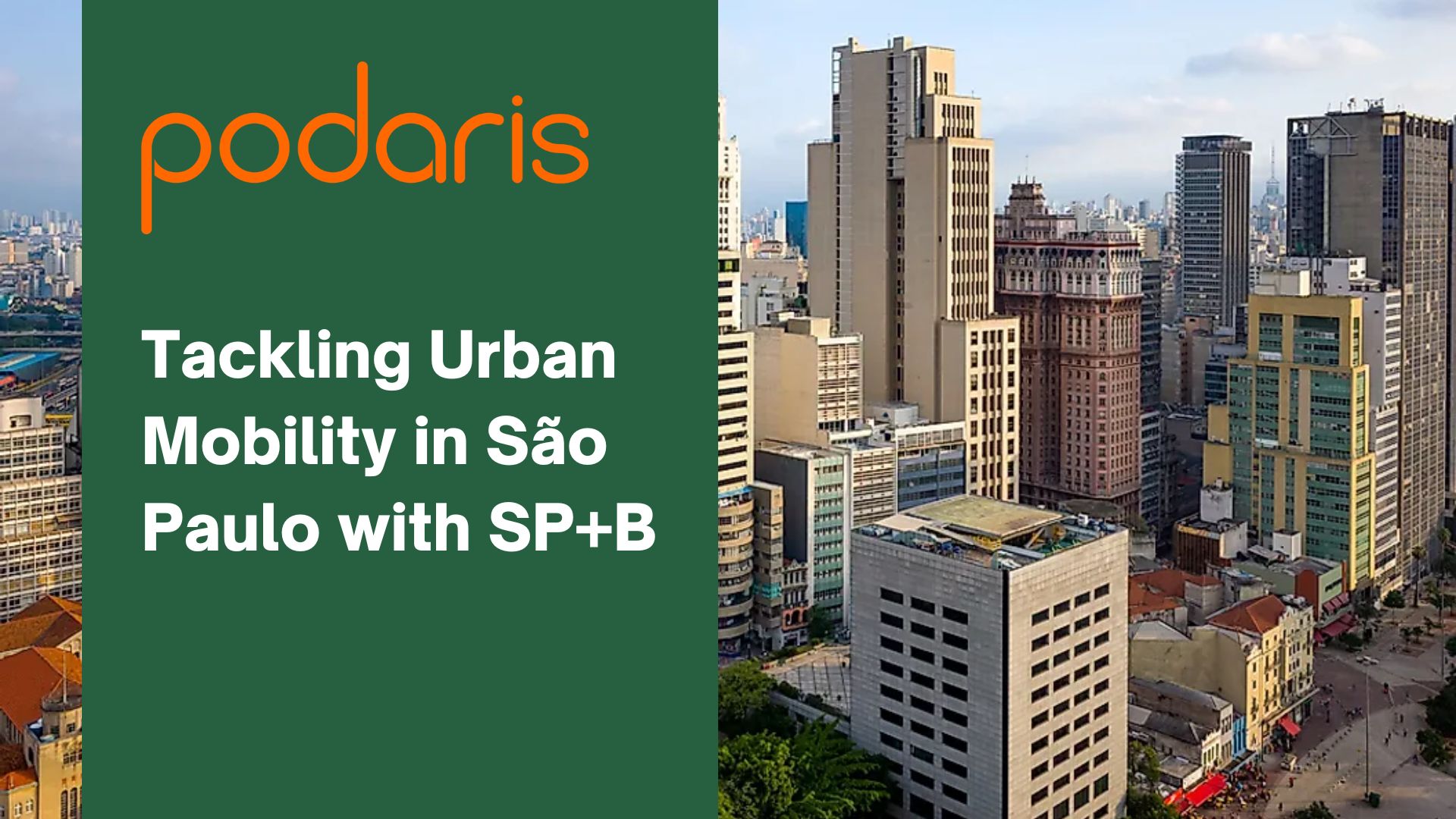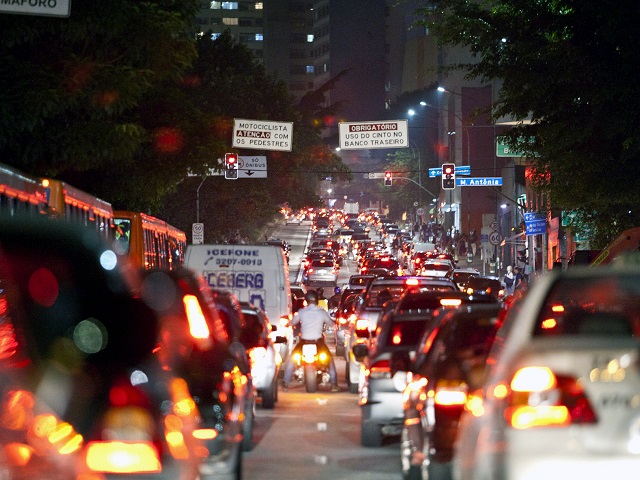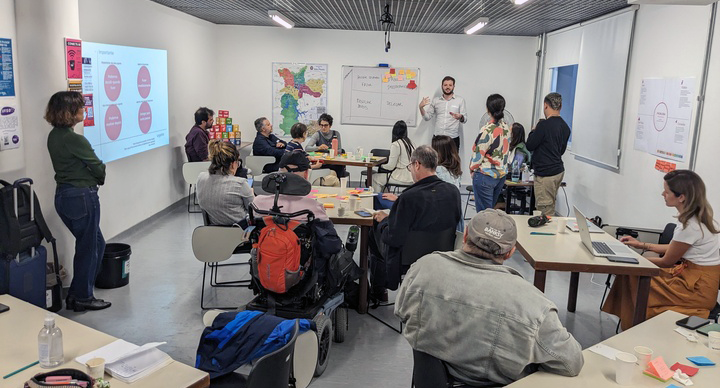
As well as being a commercial and industrial centre of Brazil, and the world's 4th most populous city, São Paulo is also a major transportation hub. It does however contend with significant transportation issues, such as traffic congestion, inefficient public transit, and environmental impacts. As Podaris welcomes Brazilian transport consultancy Vertran as a customer and joins businesses in the region as part of the SP+B collaborative problem solving workshop, we dig into the current state of mobility in the region.
An urgent call
Alarming data shows that 64% of São Paulo residents spend up to 2 hours a day commuting, and only 18% live within 1km of high-capacity public transportation, such as trains and subways. These numbers highlight the urgency of improving transportation infrastructure and promoting integration between different modes.
Among the city's main challenges are:
-
Infrastructure: There is a clear need to expand and enhance the urban mobility system's infrastructure. The city needs to invest in infrastructure to accommodate the growing number of people relying on public transportation.
-
Integration: Coordination between urban mobility systems is crucial to improving the population's mobility. This includes physical, operational, and planning integration between different modes of transportation.
-
Distribution: Reducing the need for long daily commutes is essential to improving the quality of life in São Paulo. This can be achieved by decentralizing public services and facilities and bringing jobs and residences closer together.

Traffic jams in São Paulo have known to average over 100 miles
A collaborative movement for a better world
In recent years, the global business landscape has witnessed a significant shift towards more socially and environmentally responsible practices. Amidst this transformation, B Corporations, commonly referred to as B Corps, have emerged as pioneers in South America. These companies prioritize people and the planet alongside profit, and their impact is further amplified by the presence of B Labs, organizations that foster and support the growth of B Corps across the continent.
One of the most recent initiatives is the SP+B, the B Lab for São Paulo, Brazil, to which Podaris’ Rafael Drummond was invited to collaborate alongside others such as Movida, Tembici, Metropole 1:1, Farah Service, Aromeiazero, ITDP Brasil, Ciclocidade and Insper. Its purpose is to create a vibrant community of businesses, committed to improving their social and environmental impacts and contributing to the betterment of the city. The first of a series of workshops happened on 8th August 2023 and brought together companies, non-governmental organizations, and academic representatives to discuss and work on solutions for urban mobility challenges in the 20 million people metro area.

SP+B August Conference
SP+B stands out for its ambitious goals of creating a community of companies committed to making cities more inclusive, safe, resilient, and sustainable. Through a multidisciplinary approach, the program focuses on five essential axes: housing, food security, urban mobility, work and income, and circular economy.
Practical solutions to urban mobility problems
The urban mobility workshop took place at a symbolic moment, on World Pedestrian Day, and provided an environment for collaboration and reflection on the challenges faced in São Paulo. One of the highlights of the event was the discussion on the need to make public transport safe, accessible, and sustainable for all. The aim is to meet the targets of the UN Sustainable Development Goals, which include access to quality transport systems by 2030. This discussion also emphasized the importance of considering the needs of vulnerable groups, such as women, children, people with disabilities, and the elderly when planning and improving urban mobility.
The Brazilian National Urban Mobility Policy (PNMU) was also a significant topic discussed during the workshop. PNMU aims to integrate and improve different modes of transportation, seeking more efficient mobility for people and goods across the country. However, São Paulo still faces significant challenges regarding infrastructure and integration between different modes of transportation.
The SP+B urban mobility workshops will serve as a valuable forum for identifying solutions and projects that can contribute to the construction of a more inclusive, safe, and sustainable São Paulo. A second workshop is already confirmed for the 12th September at G10 Favelas, one of the largest favelas in São Paulo, and a third in October aims to bring organizations together to develop collaborative solutions and prototypes for 3 problems associated with the city. This event will also be attended by the city's government.
This comes as Podaris welcomes Brazilian transport consultancy Vertran as a customer, whose work will involve a major network review of Lavras, a municipality in southern Minas Gerais state, Brazil. Vertran will use Podaris to explore transport services in the region, create data-driven options for routes and better understand costings.